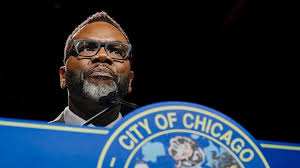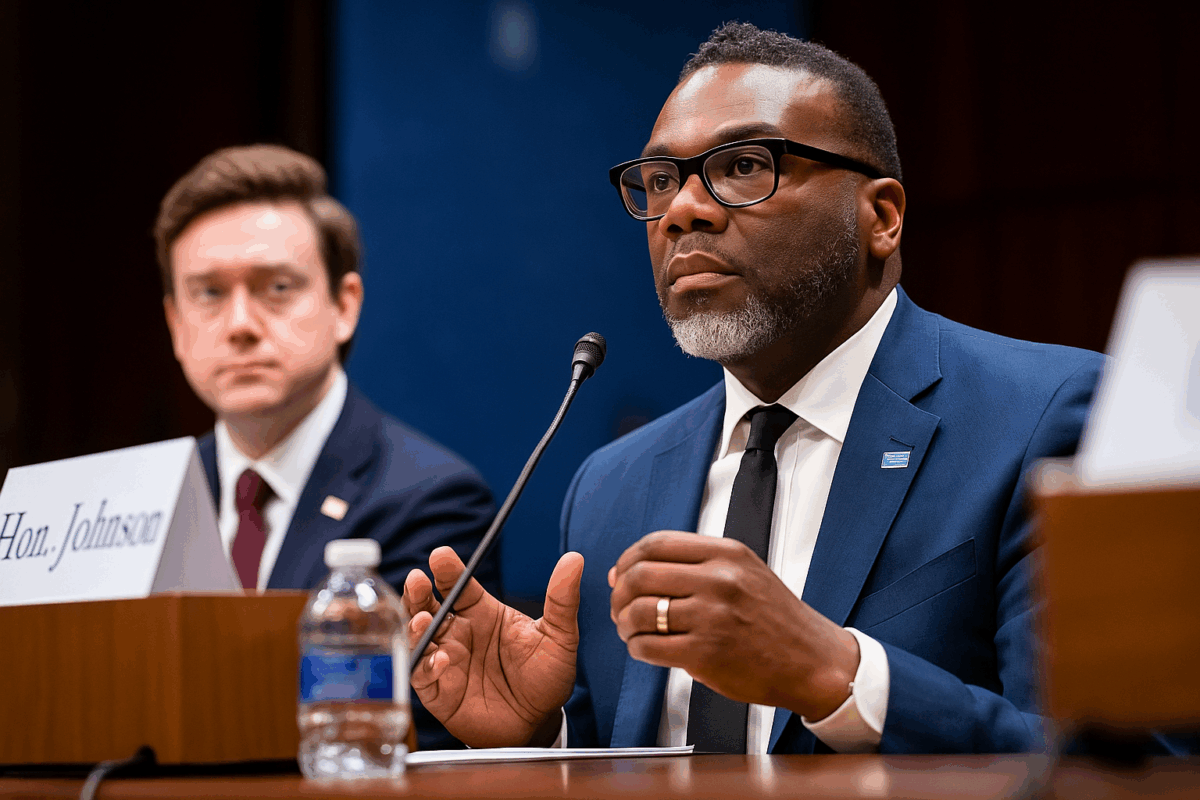Chicago is once again at the center of a heated national debate. Former President Donald Trump’s National Guard plan for Chicago has drawn sharp criticism from local leaders. Mayor Brandon Johnson strongly condemned the proposal, calling it “the most flagrant violation of our Constitution.” The disagreement has sparked concerns about federal overreach, local authority, and the fragile relationship between police and communities.

Crime Rates Are Already Declining in Chicago
Mayor Johnson argued that the National Guard plan is unnecessary because Chicago has already made significant progress in reducing crime. Official statistics show that homicides dropped by more than 30 percent in the past year. Robberies decreased by 35 percent, and shootings fell by nearly 40 percent. These improvements, the mayor said, prove that community-focused safety initiatives are working without federal intervention.
According to Johnson, Trump’s narrative of a city in crisis is misleading. He stressed that Chicago is not in chaos, and deploying troops would only disrupt the progress made so far.
Constitutional Concerns with Trump’s National Guard Plan
Legal experts and city officials warn that Trump’s National Guard plan raises serious constitutional issues. The U.S. Constitution gives states and local governments control over policing. Unless the governor or city leaders request it, deploying federal troops is widely viewed as overstepping boundaries.
Johnson firmly stated that Chicago never asked for such action. He called the proposal an attempt to score political points rather than a genuine effort to improve public safety.
Threat to Police-Community Trust
Another major objection to Trump’s National Guard plan is its potential impact on police-community trust. Over the years, Chicago has worked to rebuild fragile relationships between residents and law enforcement. The presence of heavily armed troops on city streets could reverse this progress.
Community leaders argue that militarizing neighborhoods would increase fear, escalate tensions, and undermine the sense of partnership needed for long-term safety. For many residents, the sight of troops patrolling local streets could send the wrong message—that citizens are viewed as threats rather than partners.
Chicago’s Path Forward
While Trump and his supporters frame the National Guard plan as a solution to crime, local leaders believe it could create more problems than it solves. Johnson insists that community-driven approaches, economic opportunities, and accountability measures are the real solutions for lasting peace.
Chicago still faces challenges, but the declining crime rates highlight a more hopeful picture than Trump’s portrayal. Instead of military deployment, Johnson argues that investment in communities, education, and housing will build safer neighborhoods in the long run.


